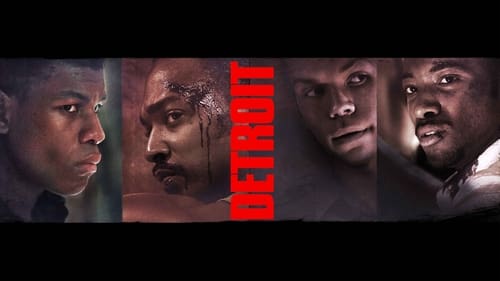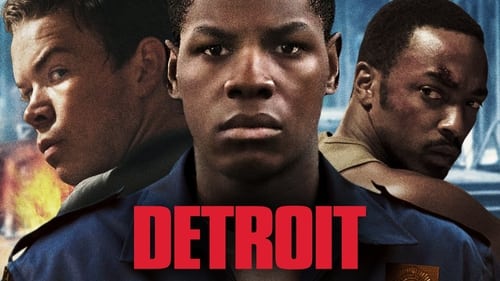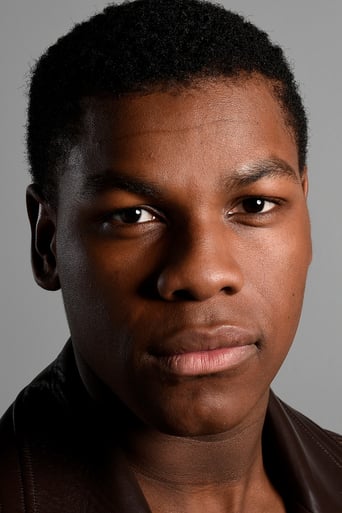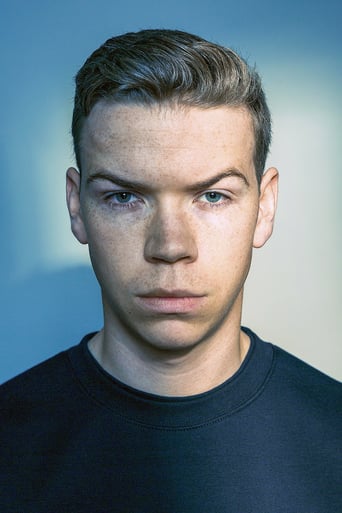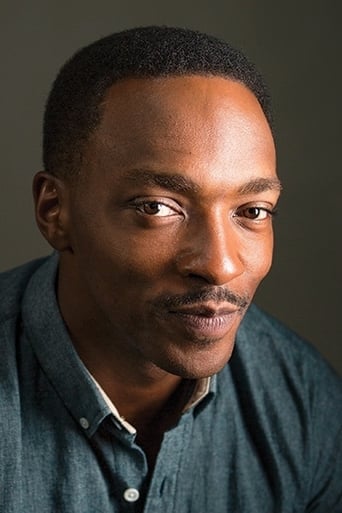Stellead
Don't listen to the Hype. It's awful
Seraherrera
The movie is wonderful and true, an act of love in all its contradictions and complexity
Myron Clemons
A film of deceptively outspoken contemporary relevance, this is cinema at its most alert, alarming and alive.
Cassandra
Story: It's very simple but honestly that is fine.
eddie_baggins
Out of all the film's that were largely ignored over the recent awards period rush of late last year and early this year, Kathryn Bigelow's The Hurt Locker and Zero Dark Thirty follow-up Detroit is one name that stands out above the rest as perhaps the most curiously overlooked of the lot.Based on a true story, featuring an up and coming cast of recognisable faces and touching on hot-topic issues that remain prevalent and in the public conscious of America to this day, Detroit had all the hallmarks of a critical darling and awards season contender that instead faced a rather bleak box-office and audience reception despite many critics hailing Bigelow's realistic and confronting direction as some of last year's best filmmaking.There's certainly no faulting Bigelow's directional style that she harnessed with The Hurt Locker and established further with Zero Dark Thirty, as Detroit well and truly feels like a documentary as the talented director melds together archival like footage of the Detroit race riots of 1967 and her narrative take on a particularly shocking incident involving a collection of Detroit police officers and their treatment of a group of predominately black locals but there's something hugely amiss in Bigelow's scope and decision making.Firstly, Detroit is far too long at 140 minutes plus and while the film's opening half is strong and involving, an extended hotel segment that anchors the whole film is repetitive to the point of infuriation while the film's final 30 or so minutes is hugely misguided and uninvolving making Detroit feel far too often like a chore to sit through.The other key element to Detroit's disappointment is in its lack of audience involvement with the characters within Bigelow's feature.There's fine work by performers like John Boyega, Will Poulter and Jack Reynor but there's nothing tying us to these characters emotionally despite the trauma and experiences they are going through and while Poulter makes a mark as the detestable racist cop Krauss, all other performers feel like passengers to a narrative that is saying a lot, of which much is important to say, but delivering it in a heavy handed and increasingly uninvolving fashion as Detroit's promising and confronting beginning gets lost in its repetitive nature and overdrawn nature.Final Say - There's some great moments within Detroit and there's little doubt that Bigelow's particular style of filmmaking is in a league of its own when it clicks but with a failure to create an emotional core and with a an unnecessarily long and repetitive approach to one particular event, Detroit peters out too a mere flicker, instead of lighting a burning flame.2 ½ church choirs out of 5
Leslie Cole
My biggest gripe about "Detroit" is that the screenplay fails to fully develop its four characters featured on the movie poster. Instead the intersection of Melvin Dismukes (John Boyega), Greene (Anthony Mackie), Larry Reed (Algee Smith) and Philip Krauss (Will Poulter) occurs with little background information to flesh out any of the characters. Despite this, John Boyega turns in a solid performance, displaying flashes of Sidney Poitier (think Virgil Tibbs from "In the Heat of the Night") and Denzel Washington. Will Poulter is convincing as the dastardly horrific, torturous police officer Philip Krauss.
robynsegg3
(I will try not to do just repeat other, better comments)'Detroit' paints a very dim picture of racial bias at the time and does an excellent (if drawn out at times) view of both the racial bias of the time and area of the US, but it also makes us question both law enforcement and the justice system (perhaps both should be in italics?). More to the point, it brings to mind our current climate with its widening intolerance and injustice not just at black (negro) people but anyone that is 'different from us' (white Christians).
austin0731
The riveting drama taking place in 1967 Detroit in the Algiers motel, this film stars various actors including John Boyega, Anthony Mackie, Will Poulter and even to my surprise, John Krasinski. This film takes place in the midst of racial tension and tension between the people and Detroit P.D. Depicting various scenes of violence, robbery and the city turning into a complete war zone, amongst the mess then focuses on the Algiers motel where all of the characters come together to set up the main story.The whole cast does a wonderful job depicting their individual characters, there is a backstory that can be seen through the dialogue, demeanor and expression of each character. The feeling that these people are real, genuine people and not characters in a movie. This strong sense of realism translates to this conflict amongst the characters which establishes the main drama of the film very well. The way that the film manages to have such great characters with individual story arcs makes them all the more sympathetic and their motives all the more clear and logical. Even in the case of Will Poulter's 'bad cop' you can understand where he is coming from and he shows certain levels of mercy and there is a very clear thought process that can be seen as an audience through the character's actions and dialogue. Detroit, manages to seem so real, almost to the extent of a documentary and that is precisely what makes the film so successful. Because it exuberates this sense of realism there are stakes that audiences can actually feel genuine emotions, dangers and intensity about. Detroit manages to retell a faithful tale of mistakes, fear, ignorance and pain in its 2 hours and 23 minutes runtime without ever feeling too long or dragged along.


